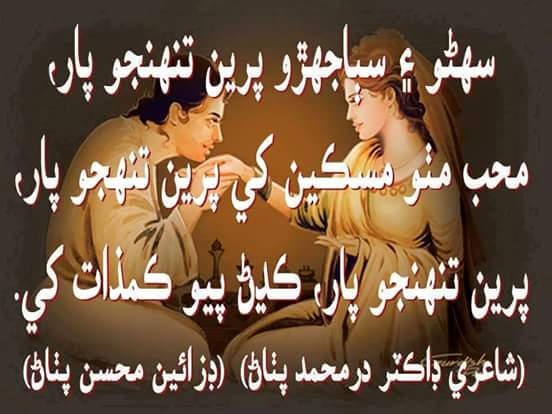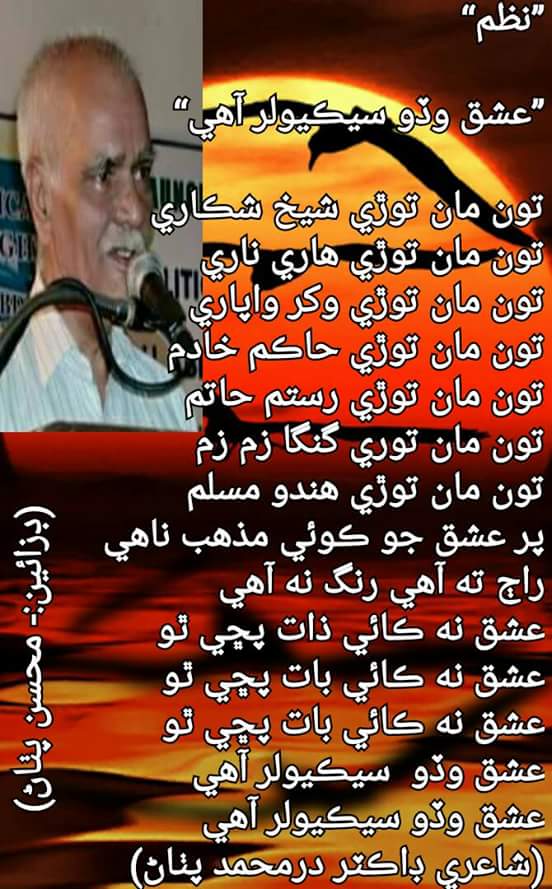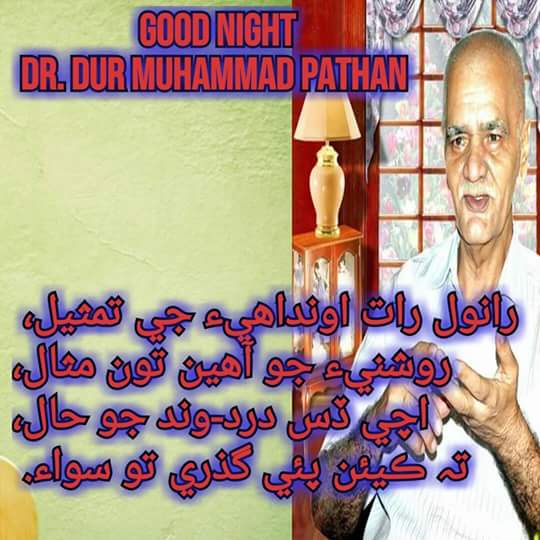Jhamandas Dwarkadas Bhatia:
He did graduation in 1919. He was appointed as a Teacher of English at the Kandiaro High School. He was writer.
Jairamdas Daulatram Alimchandani:
Stood first in D.J.Sindh College at the Previous Examination of 1909. B.A. LL.B. Joined the Bar after graduation, but interested himself more in politics than in his profession and soon came to the front rank. The most prominent Congressman in Sind. General Secretary, Indian National Congress For some years a member of the College Board. (Source: D.G.Sindh College Miscellany,1935)
Jamnadas Khiani:
He was son of Seth Pessomal Khianison of Hyderabad Sind and was the representative of famous Sind work firm of Messrs. Pohoomall Bros. (Europe). He was a patron of Bhaibund Vidva Mandal, Hyderabad, and an active member of Bhaihund Club of Hyderabad.
Jamshed Nusserwanji:
He was one of the makers of modern Karachi. He was a member of Karachi Municipality from 1914 to 1931 and was the President of the Municipality from 1922 to 1933 and was the first Mayor of Karachi Municipal Corporation in 1933-1934.He was Provincial Commissioner of Scouts in Sindh, Chairman, Buyers & Shippers' Chamber, President, Sindh Tuberculosis Relief Association, President, Sindh Flood Relief Fund, President, Karachi Health Association. He was a member of Sind Legislative Assembly. In addition to these he was a member of various Committees, Institutions and Banks. He was one of the founders of the Co-operative movement in Sindh and had done a lot to improve the standard and state of poor Haris of our province.
One of his publications is "the Karachi Municipality as at present, and its future and reconstruction of Civic Life
John Humphrey Blackwell:
He was born on the 25th April 1895 and was educated at Bedford School. In the first Great War of 1914-1918 he saw continuous service-in France from 1915 to the beginning of 1919, receiving the Military Cross and Bar as well as being Mentioned in Despatches. In 1920, when serving with the 2nd Bedfordshire and Hertfordshire Regiment at Secunderabad (Deccan), he left the Army to join the Asiatic Petroleum Co. (India) Ltd. He became Manager of Messrs. Burmah-Shell's Karachi Office which controled the whole of north west India including the Province of Sindh, the Punjab and N.W.F.P., Baluchistan, Rajputana and Afghanistan.
In 1935 he became a member of the Central Assembly and since coming to Sindh had been Chairman of the Karachi Chamber of Commerce (1939-'40 and 1943-44) and of the Sindh Branch of the European Association (1940-41). He was also a Justice of.Peace., a Member of Karachi Port Trust Board, its present Vice-Chairman.(Source: ‘The Colourful Personalities of Sindh’, by M.U.Abbasi).
Jhuromal Menghraj Advani
He was born in 1882. He was a Sindhi Translator 1925-37. Member Arts Faculty Bombay University 1930-35. Member Board of Studies in Sindhi 1930-35.He retired in 1937 as Oriental Translator to government , Director of information, Commissioner of Labour, Secretary Departmental and Vernacular Examinations Committees.
Jotesing Harising Advani:
Passed Matriculation in 1892 and joined the Engineering Branch of D.J.Sindh College Karachi. He remaind as a Executive Engineer, and Professor of Engineering at the Poona College of Engineering.
J.B.Kripalani:
Jivatram Bhagwandas was bon on 11 November 1888 in Hyderabad. He was popularly known as Kripalani, was an Indian politician, noted particularly for holding the presidency of the Indian National Congress during the transfer of power in 1947. During the election for the post of the future Prime Minister of India held by the Congress party, he had the second highest number of votes after Sardar Patel. However, on Gandhi's insistence, both Patel and Kripalani backed out to allow Jawahar Lal Nehru to become the first Prime Minister of India.
Following his education atFergusson College in Pune, he worked as a school teacher before joining the freedom movement in the wake of Gandhi's return from South Africa.
Kripalani was involved in the Non-Cooperation Movement of the early 1920s. He worked in Gandhi's ashrams in Gujarat and Maharashtra on tasks of social reform and education, and later left for Bihar and the United Provinces in northern India to teach and organise new ashrams. He courted arrest on numerous occasions during the Civil Disobedience movements and smaller occasions of organising protests and publishing seditious material against the British raj.
Kripalani joined the All India Congress Committee, and became its general secretary in 1928–29.
Kripalani was prominently involved over a decade in top Congress party affairs, and in the organisation of the Salt Satyagraha and the Quit India Movement. Kripalani served in the interim government of India (1946–1947) and theConstituent Assembly of India.
in 1950. Kripalani left the Congress and became one of the founders of the Kisan Mazdoor Praja Party. This party subsequently merged with the Socialist Party of India to form the Praja Socialist Party.
In October 1961, Kripalani contested the Lok Sabha seat of V.K. Krishna Menon, then serving as Minister of Defence, in a race that would come to attract extraordinary amounts of attention. The Sunday Standard observed of it that "no political campaign in India has ever been so bitter or so remarkable for the nuances it produced". Kripalani, who had previously endorsed Menon's foreign policy, devoted himself to attacking his vituperative opponent's personality, but ultimately lost the race, with Menon winning in a landslide.
Kripalani remained in opposition for the rest of his life and was elected to the Lok Sabha in 1952, 1957, 1963 and 1967 as a member of Praja Socialist Party. His wife since 1938, Sucheta Kripalani, remained in Congress and went from strength to strength in the Congress Party, with several Central ministries; she was also the first female Chief Minister, in Uttar Pradesh.
Kripalani moved the first-ever No confidence motion on the floor of the Lok Sabha in August 1963, immediately after the disastrous India-China and remained a critic of Nehru's policies and administration, while working for social and environmental causes..
In 1972-3, he agitated against the increasingly authoritarian rule of Nehru's daughter Indira Gandhi, then Prime Minister of India. Kripalani and Jayaprakash Narayan felt that Gandhi's rule had become dictatorial and anti-democratic. Her conviction on charges of using government machinery for her election campaign galvanised her political opposition and public disenchantment against her policies. Along with Narayan and Lohia, Kripalani toured the country urging non-violent protest and civil disobedience. When the Emergency was declared as a result of the vocal dissent he helped stir up, the octogenarian Kripalani was among the first of the Opposition leaders to be arrested on the night of 26 June 1975. He lived long enough to survive the Emergency and see the first non-Congress government since Independence following the Janata Party victory in the 1977 polls.
He died on 19 March 1982, at the age of 94.
In the 1982 film Gandhi by Richard Attenborough, J.B. Kripalani was played by Indian actor Anang Desai.
His autobiography My Times was released 22 years after his death by Rupa publishers in 2004. In the book, he accused his fellow members of Congress (except Ram Manohar Lohia, Mahatma Gandhi and Khan Abdul Gaffar Khan) of "moral cowardice" for accepting or submitting to plan to partition India.
A postal Stamp was issued in his in the year 11 November 1989 on his Birth Centenary.
Acharya Kripalani was born on the same day as Maulana Azad, who also was prominent freedom fighter. Kripalani succeeded the latter as the President of Indian National Congress at the Meerut session in 1946. (Wikipedia, the free encyclopedia).
J. Dyall:
He was the proprietor of Rama Talkies and was one of the best Tennis players of India. He won several tournaments both in Sindh and outside. He,so far, won 105 cups. He was the highest handicap players. He represented Sindh at Hyderabad Deccan, Baroda, Bombay, Lahore, Quetta, Allahabad and many other centres of Tennis.
He was the Tennis Secretary, Sindhi Gymkhana, and member of almost all the outstanding' Clubs, Karachi Gymkhana, and a member of Karachi Club Tennis Committee. As a Tennis Star he was known as the "King of Handicap Tennis".
Jethanand Thawardas Tahilramani:
He started his practice as a lawyer in Sukkur in 1901 and moved to Jacobabad in 1911 and soon rose to be one of the first rank lawyers of Upper Sind. He was Councillor of Jacobabad Municipality for 22 years and was also for some years Chairman of the Standing Committee and School Board. All along he was also Hon : Secretary of Jacobabad Club and Library.In 1937 he went to England to attend the Coronation, visited many continental places and the world famous International Exhibition at Paris. On return from Europe he established himself at Karachi in 1938. He was appointed Notary Public in 1830 and Nominee of Registrar Co-operative Societies in Sindh in 1940. He was elected Honorary Secretary, Karachi Bar Association for 1942-1913.
Jethmal Parsram Gulrajani:
Born in 1885 in Hyderabad. He was an outstanding Teacher, Writer, Poet, Journalist & Freedom Fighter. He was one of the founders of "Home Rule" & "Hari Party"in Sindh. In 1919 on account of writing against Government Policies aiming at curbing the political activities and freedom of speech, he was sentenced to 4 years imprisonment. In the "Movement of sepration of Sindh from Mombai presidency", he supported Muslim stand. He breathed his last on 06.07.1948.
Jan Muhammad Junijo:
Born on 2ndJanuary 1888 at village Dhamraha of the District Larkano.Did matric in 1909from Sindh Maderssah,Karachi and later on left for England for advanced studiesand returned as Barrester in 1915.Started Law practice and taking part inpolitical affairs of the country.He was political partner of Rais GhulamMuhammad Bhurgri and both were against the British Rule in Sindh.In 1917 hejoined Sindh Muslim League and in 1920 leaded Khilafat Tahreek.He set new trendin the history of Freedom Movement and headed Sindhi Migrants to Afghanistanduring “Hijrat Tahreek”.He relinquished all the Titles awardwe to him by theGovernment and refused to pay Govt.Tax.He breathed his last on 16.04.1921 in Ajmir.He was given poison in his meals there.
Jethanand Lalwani:
He was born on 25th March 1916 at Hyderabad and migrated to India after partition were he settled in Mumbai. In 1940, he founded ‘Bharat Jewan Sahtya Mandal’ and produced handsome number of books.He remained editor of ‘Bharat Jewan’, ‘Rajfilimistan’ and ‘Gul Phul’. He earned name for his Novel ‘Municipal Councillor’ in Sindh.
Jethmal Parsram ‘Gulraj’:
He was born in 1886 and breathed his last on 6th of July 1948. He was a Writer, Journalist and Freedom Fighter. He edited ‘Hindvasi’, ‘Rooh Rihan’ ‘Parkas’ and was member of the Editorial Board of ‘Mehran’ of Sindhi Adabi Board. He was sentenced to rigorious imprisonment due to contributing anti-government editorial in ‘Hindvasi’. He composed poetry and was known as ‘Gulraj’. He translated Theosophical literature in Sindhi. ‘Soofi sagora’, ‘Bhai Kalachand’, ‘Sachal Sarmast’ and ;Shah Bhitai Ji Hayati’ are some of his books.
Joseph Thomas Alfonso:
Born in 1882 at Karachi and got education at St. Patrick’s High School, Karachi and the Grant Medical College, Mombai .He remained Vice- Consul for Portugal at Karachi and President of Goan Union, Karachi. (Source: ‘Who’s Who & Why’-1932, Karachi).



